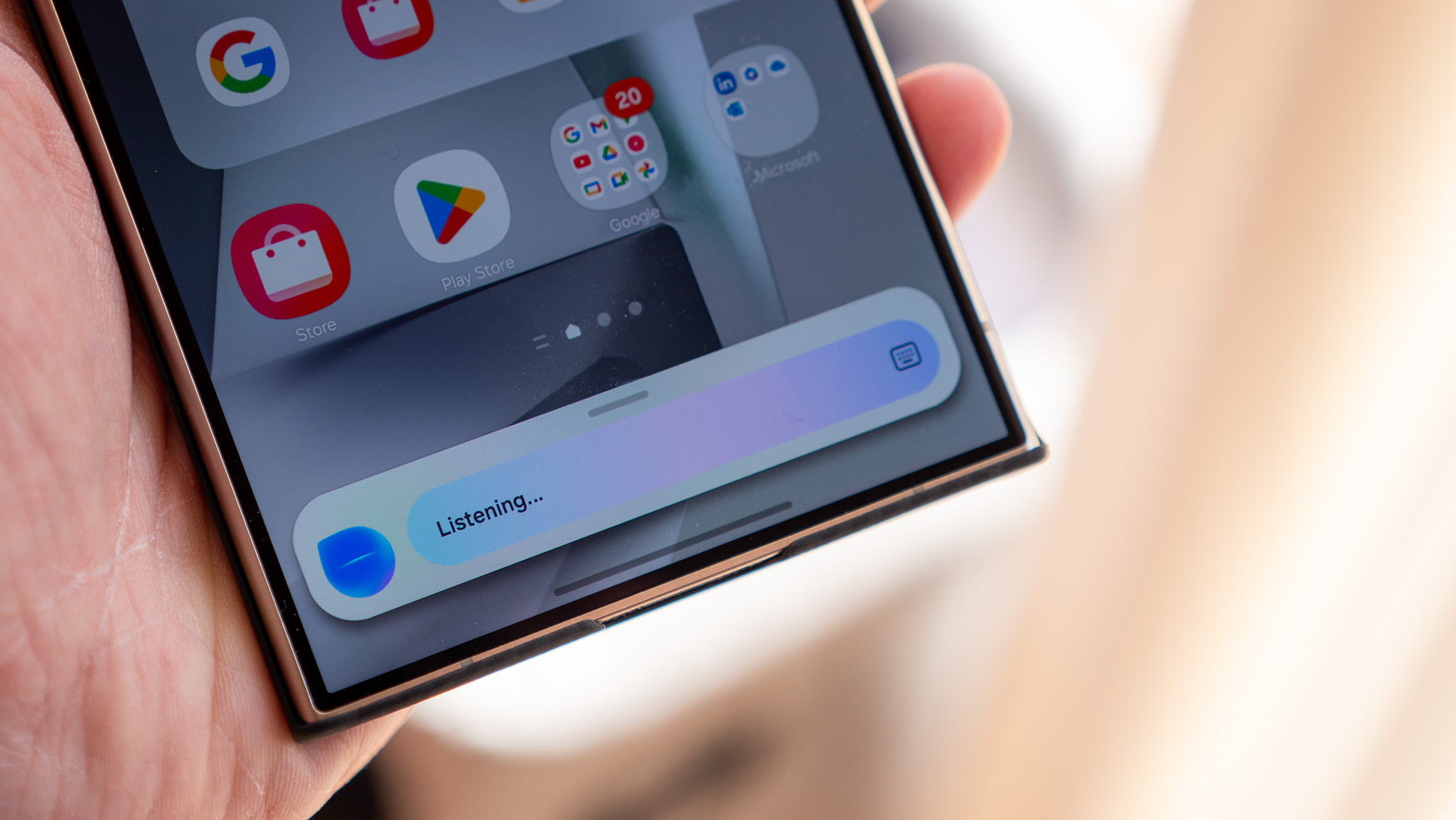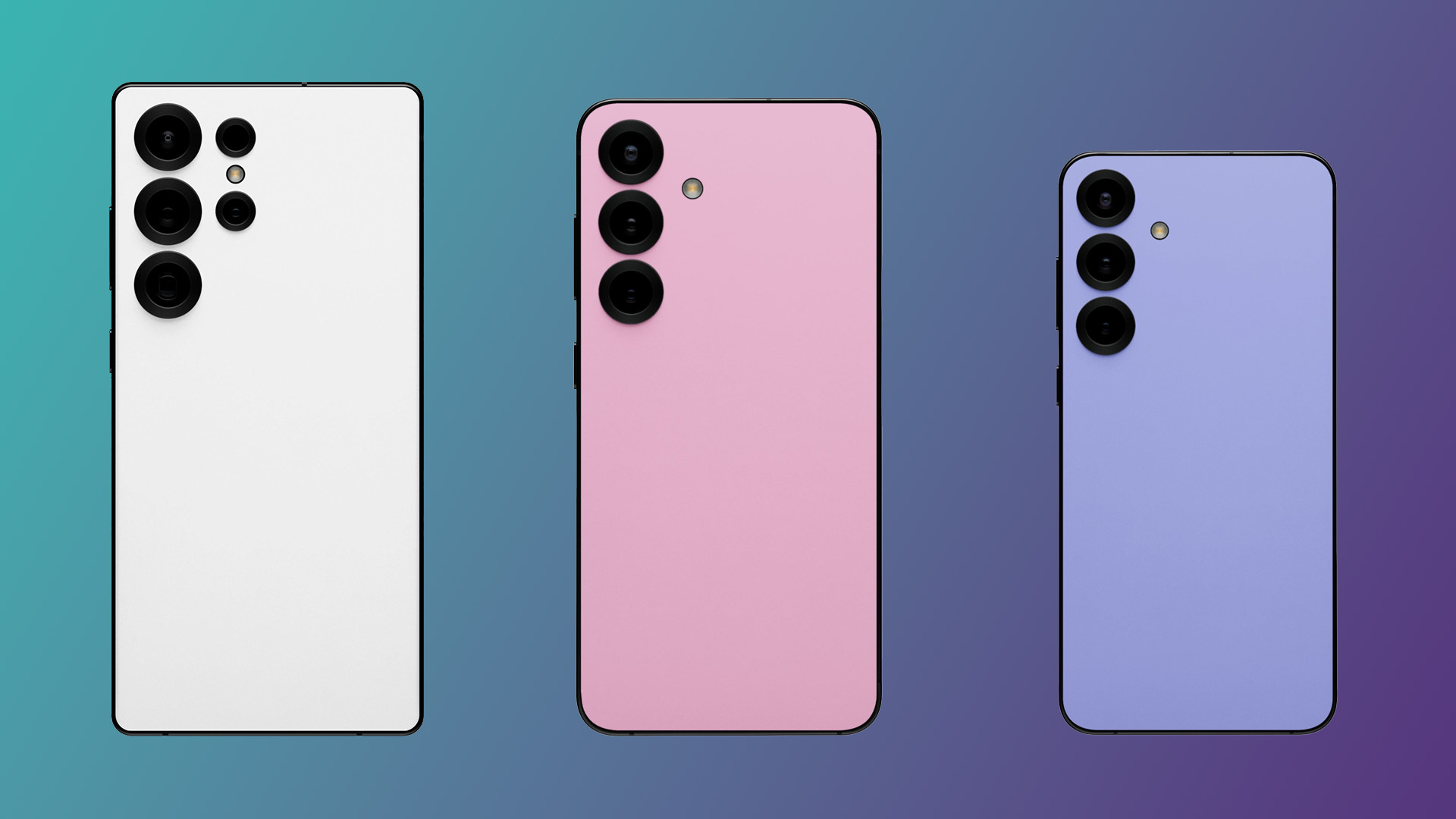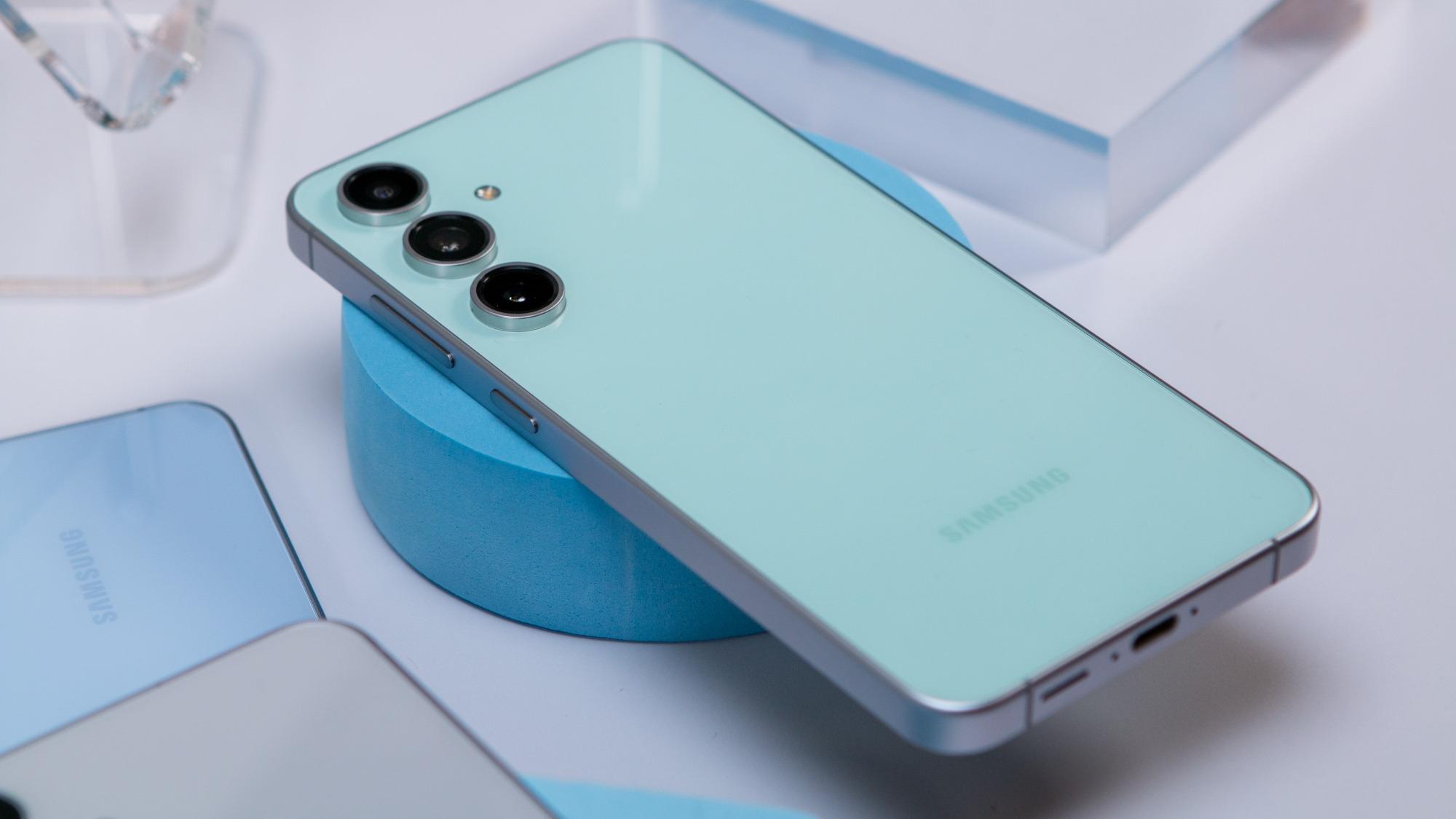I don't want this Galaxy S25 feature, but it looks like Samsung will do it anyway
Bixby has been an annoyance for years but Samsung can't seem to let it go.

When Samsung announced the Galaxy S24 with Galaxy AI last January, many of us noticed a conspicuous lack of marketing for the company's terrible virtual assistant, Bixby. While Bixby had some useful features for a while — like real-time translation or text scanning — it often felt redundant alongside Google Assistant and Gemini, which both offer a plethora of features and better voice recognition than Bixby ever had.
But Bixby's big return seems to be inevitable as the teaser for Samsung Unpacked 2025 — which will see the announcement of the Galaxy S25 series on January 22, 2025 — all but confirms. In the 16-second video, which you can watch below, a voice speaks to a familiar-looking microphone icon, asking it when Samsung Galaxy Unpacked takes place.
The invitation notes that we'll see "the next evolution of Galaxy AI," which will be "more natural and intuitive." Traditionally, that's been a code phrase for voice activation, and it lines up perfectly with the new Bixby we saw launch on China's exclusive Galaxy W series in November.
Reserve your free $50 Samsung credit today
Don't miss your chance to reserve a Samsung Galaxy S25 series phone. It's completely free, and will net you a $50 Samsung credit and up to $1,250 off the price of a Galaxy S25 device (with trade-in and instant credit) if you decide to pre-order.
This move is a curious one since Samsung used the Galaxy S24 series to deliver a public show of its strong relationship with Google by including many new Google search and AI features first. Features like Circle to Search didn't appear on other Android phones for months, and Samsung phones have often been used as launch platforms (along the Pixel series) for Gemini advancements throughout the year.
While it's possible that Samsung developed a lot of the new Bixby features specifically for the Chinese market — Google services are banned in China, after all — Samsung was among the first smartphone companies to launch a major new AI computing platform with Galaxy AI, and it would make sense for the company to continue developing its ecosystem with a predictive voice assistant for the Galaxy S25.
Samsung says the new Bixby can "deeply perceive" what a user wants, as well as maintain a sharp understanding through multi-step instructions. This sounds a lot like what Gemini and ChatGPT can do, but it's not clear if Samsung is tapping into either service or if it's Samsung's own Large Language Model (LLM) running the show.
Samsung says the new Bixby can "deeply perceive" what a user wants, as well as maintain a sharp understanding through multi-step instructions.
Samsung is also said to be upgrading Bixby's understanding capabilities so it can "cleverly integrate text and video" into the conversation. The new Bixby also upgrades office document editing and generation, letting users generate entire Word, PowerPoint, and other documents based on their needs.
Be an expert in 5 minutes
Get the latest news from Android Central, your trusted companion in the world of Android
OnePlus recently launched something similar with the OnePlus 13, allowing users to generate entire documents based on short ideas, but Samsung's Bixby will likely integrate more voice-driven commands into the equation.
While a lot of this sounds "nice," it's anyone's guess for now as to how often it'll actually be used by Galaxy users on a regular basis. I don't know a single person who enjoyed using Bixby when Samsung pushed it as the default assistant on its devices, and I can't see generative AI changing people's minds and making them want to use it more.

I don't know a single person that enjoyed using Bixby when Samsung pushed it as the default assistant on its devices, and I can't see generative AI changing people's minds and making them want to use it more.
I certainly don't think anyone wants a new Bixby and would rather just see it go away forever. That said, I do think Samsung can make the most of this opportunity to further push its edge in offline AI computing. The company recently announced a new offline AI model that's designed to "integrate into products to deliver higher levels of convenience and personalization.”
If that doesn't sound like a new voice assistant model, I don't know what does.
Samsung is one of the few companies that offers users the option to only process AI-related tasks on-device, even if that means some features are slower or unavailable for use. It allows users to prioritize local computing and privacy over more feature-rich cloud processing.
It also presents the possibility of having AI features long term, as cloud-based AI capabilities like Gemini Advanced require users to pay a monthly subscription fee to maintain server costs. If Samsung has any edge in the AI game, it's this offline processing functionality and a more mature backend software stack thanks to how quickly it moved to integrate AI into its phones.
But Samsung needs to be careful here. Adding another annoying virtual assistant to a phone that's already chock full of confusing and sometimes redundant features is a recipe for frustration. People don't want two gallery apps. They don't want two assistant apps. And they definitely don't want more AI to raise the price of their phones for the third year in a row.
The question is if Samsung is listening to users or just its investors, and I'm not fully convinced it's the former.

You must confirm your public display name before commenting
Please logout and then login again, you will then be prompted to enter your display name.


